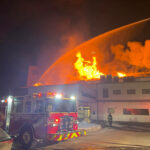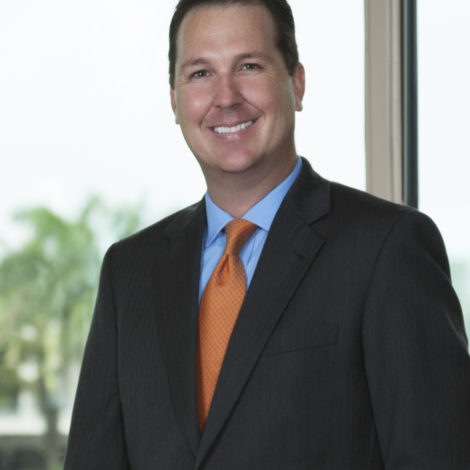Every day the impact technology has on our daily lives increases. The legal profession is not immune to the inundation of technological advances. A prime example of the collision of law and technology is how forensic meteorology impacts first-party property insurance cases.
First-party property cases are on the rise, especially in Florida. With the recent hurricane activity in this state, there is no shortage of business for both the attorneys representing the homeowners and the defense attorneys representing the insurance carriers. Now, more than ever, these attorneys are turning to forensic meteorologists as experts to assist with their case analysis.
Much like a crime scene investigator, a forensic meteorologist is a weather investigator that evaluates the impact weather has on the alleged damage to the person or property. These experts use weather modeling, weather records, atmospheric data, weather re-enactment simulations, and eyewitness accounts to confirm or corroborate weather conditions on a specific date and time.
Forensic meteorology has been around for many years. One of the earliest instances of the law intersecting with weather dates back to the 1800s. The case involved a neighbor who brought suit against a minister for praying for rain during a drought and alleged that the neighbor’s barn was struck by lightning during the rainstorm and burned down. Ultimately, the case was dismissed, but this lawsuit started a trend.
Evaluations by forensic meteorologists can be used to confirm a specific weather event, the location of the event, and to evaluate the severity. In fact, in some instances, forensic meteorologists can provide the exact strength of wind gusts at a particular address. This kind of pinpoint accuracy is incredibly useful to attorneys on both sides of first-party property claims. For example, if a homeowner reports damage to his or her home from a hailstorm, the homeowner’s insurance carrier may retain a forensic meteorologist as part of the carrier’s investigation. The forensic meteorologist, through various pieces of data, can corroborate if hail impacted the homeowner’s specific address.
Forensic meteorology is not confined to first-party property cases alone and can be used in a multitude of legal matters such as murder cases, traffic accidents, airplane accidents, boating accidents, slip and fall incidents, and arson cases, among others.
Equally as diverse are the types of weather events that can be evaluated by the forensic meteorologist for use in court. Forensic meteorologists provide analysis of all-weather events – from snowstorms to hurricanes, floods, droughts, rain, hail storms, tornadoes, and ice storms – which can be evaluated for location, duration, and intensity. The breadth of the insight that is provided by a forensic meteorologist is invaluable to attorneys in a variety of fields to help prove, or disprove, allegations in a case.
Most forensic meteorologists typically have a Bachelor of Science degree in meteorology or atmospheric science and have worked in a capacity as a meteorologist, or some other weather-related field to develop the needed experience to accompany their degree.
For the more experienced forensic meteorologists, the accolade of a certified consulting meteorologist (CCM) is obtained through the American Meteorological Society. According to the American Meteorological Society, this designation requires passing a rigorous written examination, and a verbal exam administered via a panel of the applicant’s peers. Once a forensic meteorologist obtains the CCM designation, that individual is considered an expert in the application of weather information.
In a trial, forensic meteorologists have regularly testified as experts. As with any expert witness in Florida, the forensic meteorologist is now subject to the Frye standard (see DeLisle v. Crane Co., et al., No. SC 16-2182), which makes the scientific community the gatekeeper of the admissibility of the testimony, or evidence, as determined by Frye v. United States, 293 F. 1013 (D.C. Cir. 1923). The basic principle of Frye is whether other experts generally accept the expert testimony in the particular field in which it belongs; or, in other words, whether the procedure, technique or principle in question is generally accepted by a significant proportion of the relevant scientific community.
The trend currently seems to be that forensic meteorology meets Florida’s Frye standard and is admissible in a trial; however, the final determination will be based upon the specific credentials of the expert witness.
Topics Florida Property Homeowners
Was this article valuable?
Here are more articles you may enjoy.


 AIG Underwriting Income Up 48% in Q4 on North America Commercial
AIG Underwriting Income Up 48% in Q4 on North America Commercial  Inside the Toxic Legacy of Georgia-Based Mulitbillion-Dollar Carpet Empire
Inside the Toxic Legacy of Georgia-Based Mulitbillion-Dollar Carpet Empire  Allstate CEO Wilson Takes on Affordability Issue During Earnings Call
Allstate CEO Wilson Takes on Affordability Issue During Earnings Call  Fire at Pennsylvania Hospital Forces Evacuation of Dozens of Patients
Fire at Pennsylvania Hospital Forces Evacuation of Dozens of Patients 


